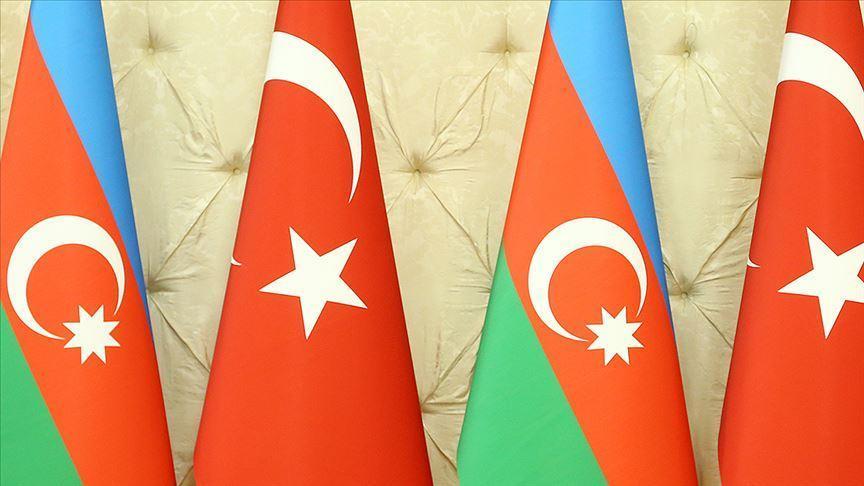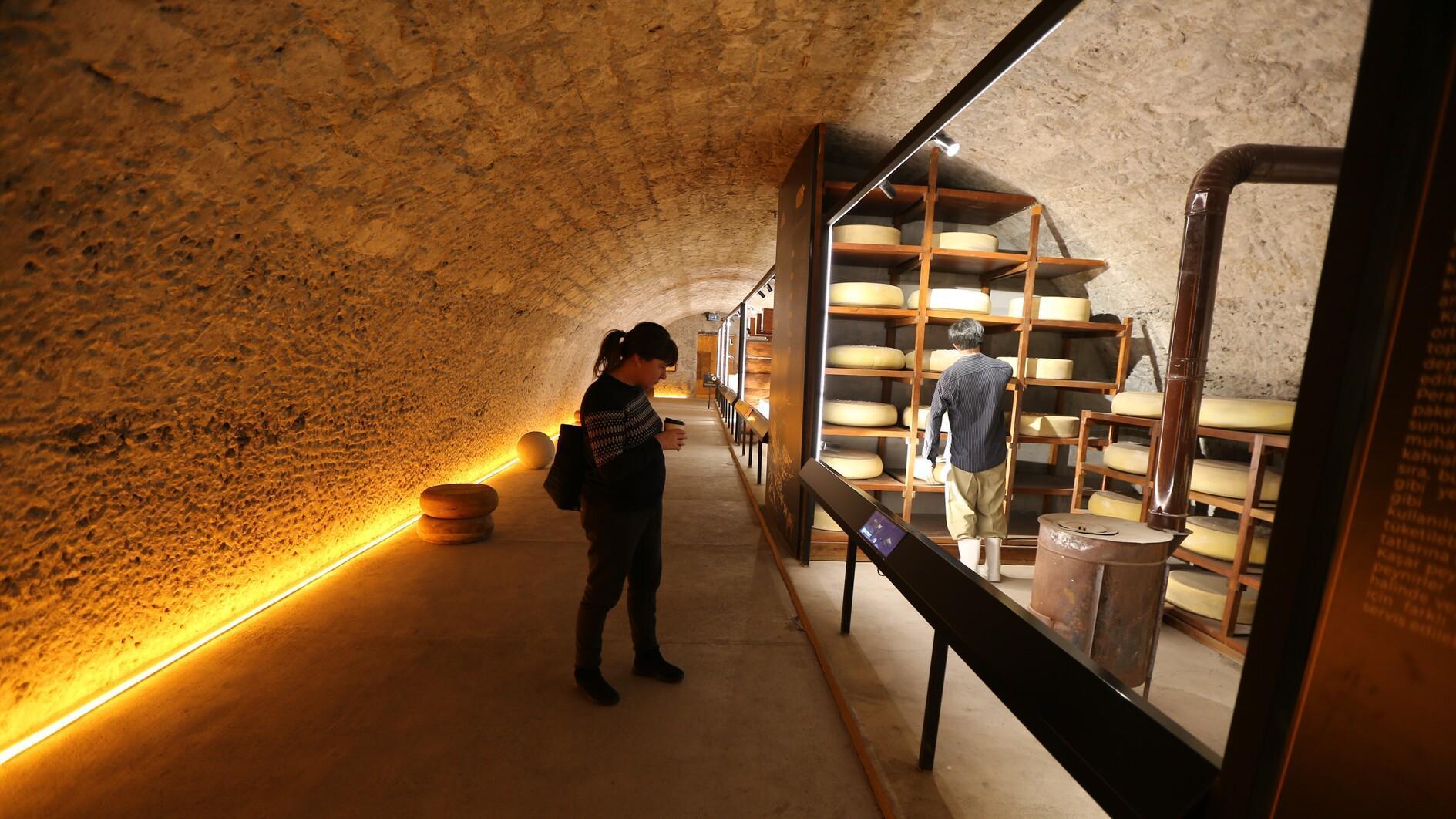One nation two states, Turkey and Azerbaijan: Op-ed
Taras Kuzio

As the Nov. 8 anniversary of Azerbaijan’s victory in last year’s war with Armenia approaches, it is worthwhile to analyze how it led to the solidification of a Turkish-Azerbaijani strategic partnership.
The concept of One Nation-Two States of Turkey and Azerbaijan has a long history based on a common history, culture, and language. Turkey was the first country to recognize Azerbaijan’s independence from the Soviet Union. The concept of One Nation-Two States had support from the first year of Azerbaijani independence in 1991 when the leader of the Popular Front Party of Azerbaijan, Abulfaz Elchibey, called himself “Ataturk’s soldier” and defended the idea of uniting Turkey and Azerbaijan in a confederation. The concept of One Nation-Two States has very broad support in Azerbaijani society, especially since the country’s victory in the 44-day Second Karabakh War last year.
In the 2000s, the concept of One Nation-Two States was frayed by different approaches to re-opening Turkey’s border with Armenia, energy and other questions. Only in the last decade did the concept of One Nation-Two States become more clarified culminating in the June 2021 Shusha Declaration signed by Turkish and Azerbaijani Presidents Recep Tayyip Erdoğan and Ilham Aliyev. In the last decade, Turkey has become the main conduit for the export of Azerbaijani oil and gas, Azerbaijan became a major investor in Turkey, the number of Azerbaijani officers training in Turkish military colleges increased, and the number of joint military exercises grew. Azerbaijan purchased modern Turkish military equipment, such as drones. Importantly, Turkey made the normalization of relations with Armenia conditional on its withdrawal from occupied Azerbaijani lands.
The concept of One Nation-Two States is not unique to the South Caucasus. Romania and Moldova and Albania and Kosovo are the closest analogies of two countries from the same ethnic group and speaking the same language. But of these two examples, only Romania and Moldova share the same blue, yellow, and red flags. Turkey and Azerbaijan, like Albania and Kosovo, have different flags. Another example are two states on the Korea peninsula that resemble the two parts of Germany until they were reunited in 1990.
Unfortunately, not all cases of the concept of One Nation-Two States are benevolent. Serbia and Montenegro are in conflict over whether Montenegrins are “Serbs” or a separate nation. A separate Macedonian identity appeared in Communist Yugoslavia, much to the annoyance of Serbs who believed they were a Serbian tribe. Since Macedonia became an independent state in 1991, Greece and Bulgaria have continued to remain reluctant to recognize the existence of a Macedonian nation. Greece denies the existence of its Macedonian minority while Bulgaria declares them to be “Bulgarians.”
Russian nationalism has always denied the existence of Belarusians and Ukrainians believing they are Great Russian, White Russian (Belarusian) and Little Russian (Ukrainian) branches of a pan-Russian nation. Russia’s One Nation-One State is therefore a threat to Belarusian and Ukrainian identities, which is certainly not the case with Turkey and Azerbaijan’s concept of One Nation-Two States. The Shusha Declaration asserts Turkey and Azerbaijan’s interests in defending their mutual independence, and the inviolability of their internationally recognized borders. Armenian nationalism likewise denies the existence of an Azerbaijani nation claiming they are “Turks,” ignoring a century of separate development of national identities in the Turkish Republic and the Soviet Azerbaijani Republic.
Turkey is the closest Turkic-language country to Azerbaijan and “the two countries also hold roughly the same views on Turkishness, which cannot be said of countries such as Uzbekistan and Kazakhstan.” In the 1920s, after the Soviet occupation of Azerbaijan ended the Azerbaijani Democratic Republic, “Azeri intellectuals active in the Muslim reformist movement moved to Turkey to help with the foundation of the new Kemalist Republic.”
Azerbaijanis’ credit both their own authorities and Turkey with the liberation of occupied lands held by Armenia for nearly three decades. Azerbaijani Mayor General Huseyn Mahmudov said, “Turkey played an indispensable role and gave us leverage and courage to battle all enemy attempts to [maintain the] capture of our lands. It gave us additional courage to be ready to go into operation and liberate the occupied lands.”
The Shusha Declaration was the first occasion where two countries, one from the former USSR and a NATO member, signed a strategic partnership which amounts to a de facto security pact. Within the former USSR, only the three Baltic states of Lithuania, Latvia, and Estonia are NATO members.
President Erdoğan has stated that Turkey will not hesitate to stand against those who attack Azerbaijan.
Similar to the NATO-Ukraine Charter on a Distinctive Partnership signed in 1997 the Shusha Declaration states that “if there is a threat or an act of aggression from a third state or states against their independence, sovereignty, territorial integrity, the inviolability or security of their internationally recognized borders, the parties will hold joint consultations.”
But following these “consultations” the Shusha Declaration goes an important step further than the NATO-Ukrainian Charter. The Shusha Declaration states that “After determining through urgent discussions the volume and form of such possible assistance, a decision will be made to secure defense needs for the adoption of joint measures and coordinated activities will be organized of power-wielding and administrative agencies of the Armed Forces.”
Since last year’s 44-day war, military, security, and economic cooperation has expanded between Turkey and Azerbaijan. Turkish companies are involved in rebuilding the destroyed infrastructure of Western Azerbaijan destroyed during three decades of Armenia’s occupation. Media reports talk of the possible opening of a Turkish military base in Azerbaijan, which Russia has already raised concerns about. The Shusha Declaration spells out many areas for future cooperation in developing military technology, joint military exercises, enhancing cyber security and combatting terrorism against Turkey.
Closer integration and development of the strategic partnership outlined in the Shusha Declaration will continue to grow, nevertheless, “the establishment of an Azerbaijani-Turkish confederation is unlikely in the near future.” The concept of One Nation-Two States will therefore remain and will not be replaced by One Nation-One State.
*Taras Kuzio is an Associate Research Fellow at the Henry Jackson Society and Professor in the Department of Political Science, National University of Kyiv Mohyla Academy.
















